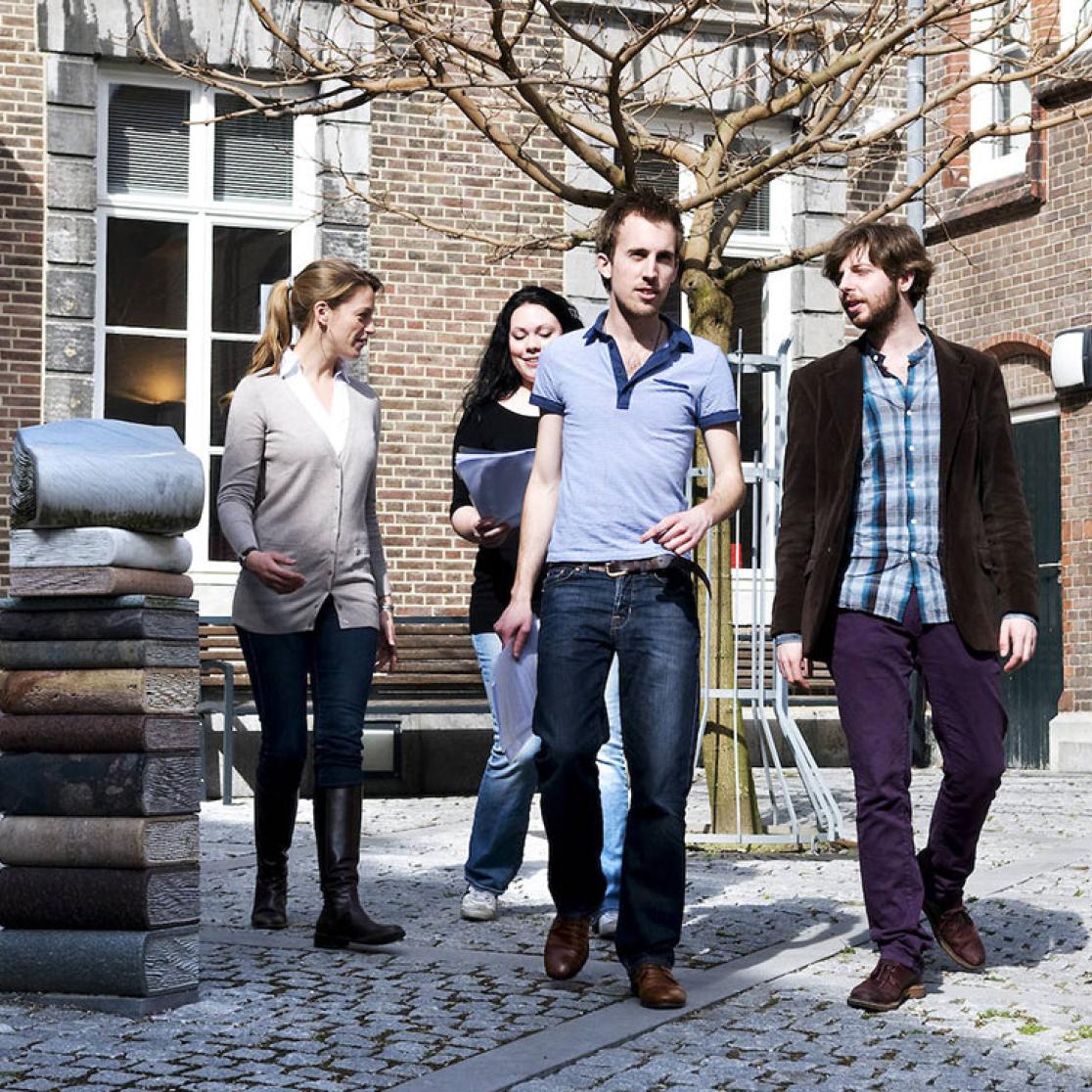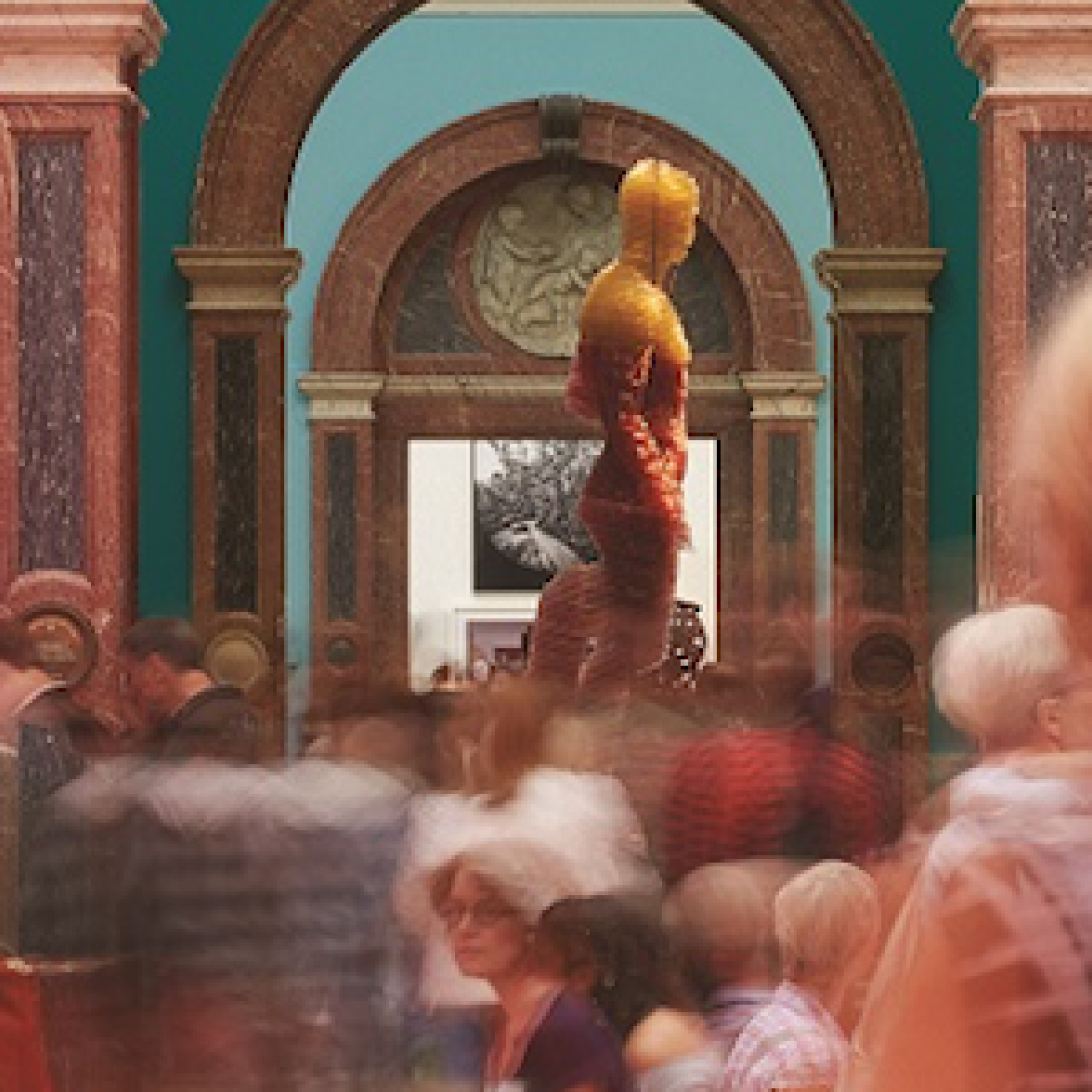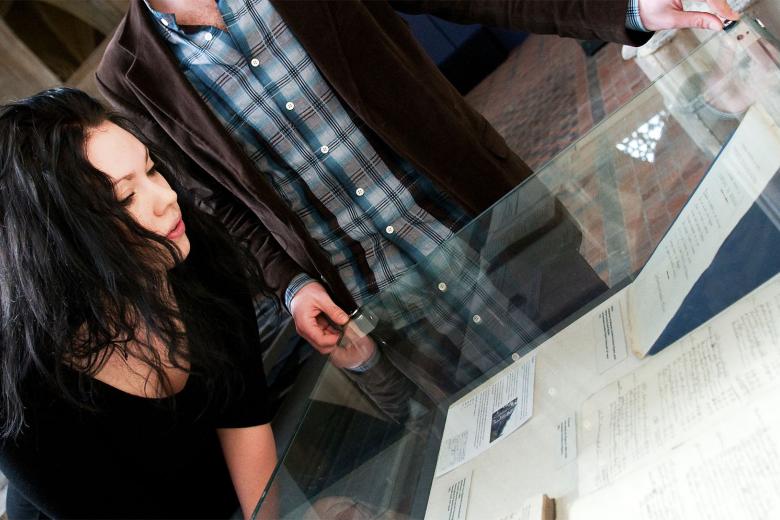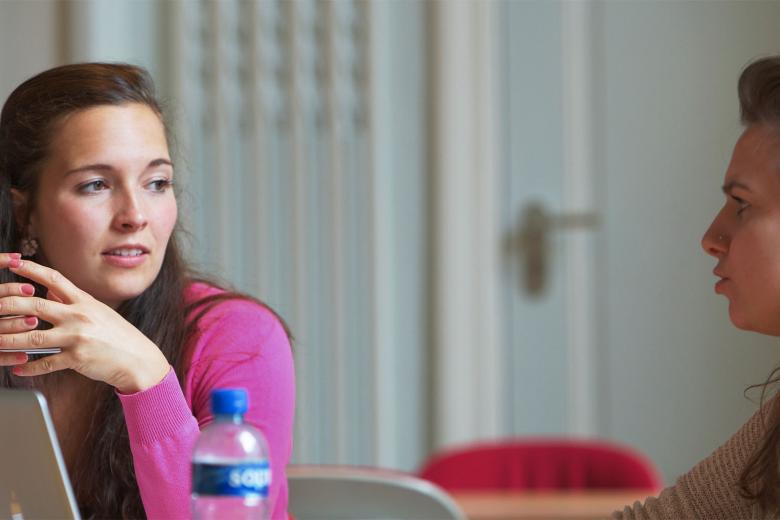MACCH Education
Teaching in the area of art, culture, conservation and heritage is important to many Maastricht University faculties and cross-faculty cooperation takes place in different forms and at various levels (Bachelor, Master, PhD). Examples include the successful joint Minor of the Faculty of Arts and Social Sciences and the Faculty of Law named “Art, Law and Policy Making”. MACCH affiliated researchers contribute to the Master Arts and Heritage: Policy, Management and Education and oversees many courses on both the bachelor's and master's levels encompassing law and art, the art market, art theory, and museum studies.
On a regional level, MACCH affiliated researchers collaborate with Hogeschool Zuyd; I-Arts; Jan van Eyck Academy. (Inter)national partners are for example: University of Amsterdam; Sotheby’s Institute of Art; KU Leuven; University of Hasselt; Maastricht University Campus Brussels.
Joint Minor Art, Law and Policy making
“If I had to begin the project of European integration again, I would start with culture.”
The interfaculty minor ‘Art, Law and Policy Making’ approaches art and cultural production from the perspectives of art history and theory, the economy and sociology of art, the anthropology of art, museum studies, art law, intellectual property law and media law. It features a special emphasis on studying the role of art and culture in institutions such as museums, government, business and the art market. Furthermore, relevant realms of public policy making and regulatory mechanisms are introduced.
This interdisciplinary minor is taught by staff affiliated with the Maastricht Centre for Arts and Culture, Conservation and Heritage (MACCH) and is open to students from all Maastricht University faculties.

Executive Master in Cultural Leadership
Cultural leaders understand how culture influences business and how business influences culture. As a thought leader in today’s society, visionary companies view you as talent, able to innovate and drive change – across all industries and globally. Maastricht University and the Royal Academy of Arts have partnered to offer this pioneering Executive Master in Cultural Leadership. This education programme for professionals is designed to prepare you for the challenges in the next step in your career. Providing personal leadership and management development tailored to your own ambitions and goals.

Bachelor's courses
MACCH affiliated researchers contribute in teaching and expertise to the following bachelor's courses:
Master's education
MACCH contributes education and research expertise to the following master’s programmes:
Arts and Heritage: Policy, Management and Education
In this programme - taught in both English and Dutch - you'll discover the academic and professional knowledge and skills you’ll need to become a policy maker, art manager, museum educator or a curator. This internationally-oriented programme approaches art and cultural heritage from different perspectives. You also have plenty of opportunity to concentrate on specific areas of interest.

Contemporary Literature and Arts: Cultural Interventions and Social Justice
The programme is aimed at critical and creative thinkers who have a large array of interests. As a graduate of this programme, you will have a broad insight into present day questions of national and international concern. You will also have experience conducting incisive debates and will be able to contribute to contemporary discussions surrounding art and literature.

Digital Cultures
Combines theoretical reflection, research on user practices, and basic media skills training. Media studies is interdisciplinary, integrated with political philosophy, philosophical aesthetics, history, and sociology of technology. You'll develop the theoretical, analytical and practical skills essential to understanding and adapting to the ever-changing media world.

Research Master in Cultures of Arts, Science and Technology
A one-of-a-kind programme that examines the different ways in which the seemingly separate and contrasting fields converge: sciences, arts, and technology. The programme combines the study of history, sociology, philosophy, and qualitative social sciences with scientific method training such as archival research, discourse analysis, and ethnographic observation.
